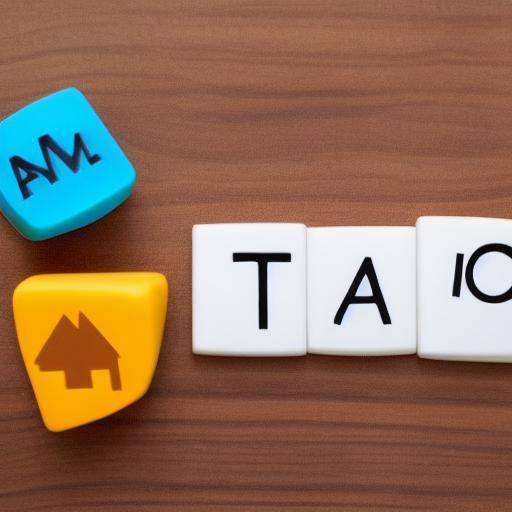
Intuition is an intrinsic aspect of the human condition that has played a crucial role in decision-making throughout history. In the context of personal development, understanding how intuition influences our choices can have a significant impact on our daily lives, personal relationships and goals.
In this article, we will explore in depth the importance of intuition in decision-making and its relation to personal development. From its origin and evolution throughout history to its practical application in various contexts, we will analyze the current advantages, challenges and trends. In addition, we will compare intuition with decision-making in a holistic manner, provide practical advice and provide a vision of future trends in this field.
History and Background
Intuition, understood as an instant perception without the use of logic or conscious reasoning, has been a subject of fascination and debate throughout history. The philosophical and religious roots of intuition go back to ancient civilizations, where it was considered a divine gift or a connection with the collective unconscious. From Aristotle to Descartes and Kant, eminent thinkers have reflected on the nature of intuition and its role in decision-making.
In the twentieth century, modern psychology and neuroscience have provided a greater understanding of the cognitive processes underlying intuition. The theories of intuition have evolved from being considered irrational to being seen as manifestations of the accumulated experience at an unconscious level. This paradigm shift has led to greater recognition of intuition as a valuable cognitive process in decision-making.
Detailed Analysis
Intuition plays a crucial role in decision-making, as it allows rapid processing of information and identification of subtle patterns that can escape conscious perception. This can be particularly beneficial in situations that require rapid responses, such as in business or high-risk environments.
However, intuition also presents challenges, as it can be influenced by cognitive biases and implicit prejudices that distort the perception of reality. Even so, when used in a conscious and balanced manner, intuition can complement and enrich the decision-making process.
Intuition also plays a fundamental role in personal development, as it allows us to tune with our deepest emotions and values. By cultivating the ability to listen and trust in our intuition, we can make decisions more aligned with our purpose and enjoy a greater sense of satisfaction and personal realization.
Comprehensive review
In the context of decision-making, intuition is intertwined with rationality and analytical thinking, providing a complementary perspective that enriches the decision-making process. By integrating intuition into data analysis and evaluation of options, we can achieve more balanced and informed decisions.
Compared to purely data-based decision-making or rational analysis, the inclusion of intuition can unlock creative and insightful solutions that transcend the limitations of linear logic. By expanding our ability to access information, we can make more informed and contextualized decisions.
Comparative analysis
In considering the relationship between intuition, decision-making and personal development, we can identify synergies and deep connections. Trust in our intuition can promote greater personal empowerment and greater self-consciousness, which in turn influences the quality of our decisions and the achievement of our goals.
While decision-making focuses on the rational assessment of options and risk analysis, intuition provides an emotional and perceptive dimension that enriches the way we address the challenges. By consciously integrating intuition into our decision-making processes, we can develop greater emotional intelligence and deeper tuning with our environment.
Practical Tips and Recommendations
To effectively cultivate and use intuition in decision-making and personal development, it is essential to develop self-consciousness and the ability to be present at the time. By paying attention to intuitive signals, we can learn to discern between emotional noise and true inner orientation.
By maintaining a balance between rational reflection and intuitive listening, we can make decisions more aligned with our purpose and values. The practice of meditation, mindfulness and connection with nature can strengthen our connection to intuition and broaden our perspective.
Industry Perspectives and Expert Reviews
Experts in psychology, leadership and personal development have advocated for conscious integration of intuition in decision-making. Recognizing the value of intuition as a valuable resource, its inclusion in business and organizational environments has been promoted as a complementary tool for strategic decision-making.
In addition, business and innovative leaders have shared experiences in which intuition has played a crucial role in identifying opportunities and making risky decisions, leading to outstanding results. Dialogue on harmonious integration of intuition and rational analysis has proved to be valuable in the evolution of decision-making practices.
Case Studies and Practical Applications
Numerous case studies illustrate how intuition has been a differentiating factor in business, leadership and personal situations. From strategic corporate decisions to personal life choices, the ability to listen and trust in intuition has proven to be an invaluable resource.
The practical applications of intuition in decision-making cover various areas, including problem solving, innovation, staff selection and crisis management. The ability to balance intuition and rational analysis has proved to be a determining factor in the quality and effectiveness of decisions.
Future Trends and Predictions
As the interconnection of intuition, decision-making and personal development continues to be investigated and promoted, new approaches and innovative practices are expected to emerge. The growing recognition of the value of intuition in professional and personal environments shows greater integration of holistic approaches in decision-making.
With the advancement of artificial intelligence and data analysis, synergy between human intuition and technology is expected to play a key role in the design of effective and ethically informed solutions. Understanding and implementing intuition in the context of decision-making and personal development is an evolving theme that promises to continue to generate enriching conversations and discoveries.
Conclusion
In short, intuition plays an essential role in decision-making and personal development, providing a complementary perspective that enriches our ability to address the challenges and opportunities presented in life. By cultivating the ability to tune with our intuition in a balanced and conscious way, we can make decisions more aligned with our purpose and enjoy greater personal realization.
Harmonic integration of intuition and rational analysis represents a path to more informed, conscious and satisfactory decisions. By understanding and appreciating the importance of intuition in the landscape of decision-making and personal development, we can expand our ability to influence our environment in a positive and meaningful way.
Frequently asked questions
1. What is intuition and how does it relate to decision-making?
Intuition refers to instant perception without the conscious use of logic or reasoning. In decision-making, intuition can provide a complementary perspective that enriches the options assessment process.
2. What are the benefits of relying on intuition in decision-making?
Trusting intuition can allow quick processing of information and identifying subtle patterns that can escape conscious perception. In addition, it can lead to creative and insightful solutions that transcend the limitations of linear logic.
3. What are the challenges associated with intuition in decision-making?
Intuition may be influenced by cognitive biases and implicit prejudices that distort the perception of reality. It is essential to balance intuition with rational analysis to mitigate these challenges.
4. How can I develop my intuition to make decisions more aligned with my personal development?
The practice of meditation, mindfulness and the connection with nature can strengthen our connection to intuition and broaden our perspective. Self-consciousness and the ability to be present at the time are key to effectively cultivate and use intuition.
5. What is the role of intuition in business and organizational environments?
In business environments, intuition can play a crucial role in identifying opportunities and strategic decision-making. Conscious integration of intuition and sound analysis has proved to be valuable in the evolution of decision-making practices.
6. What are future trends related to intuition, decision-making and personal development?
New approaches and innovative practices that integrate intuition into professional and personal environments are expected to emerge. The interconnection between intuition, artificial intelligence and data analytics promises to play a key role in finding effective and ethically informed solutions.
In conclusion, the conscious understanding and application of intuition in decision-making and personal development represents an opportunity to expand our ability to influence our environment in a meaningful way. By balancing intuition with rational analysis and conscious reflection, we can achieve more informed, conscious and satisfactory decisions.






















































